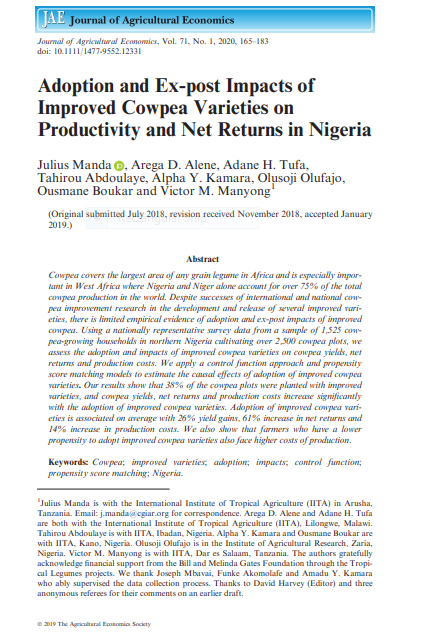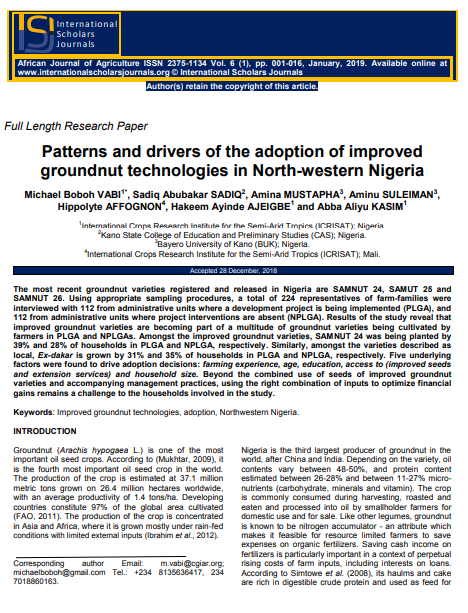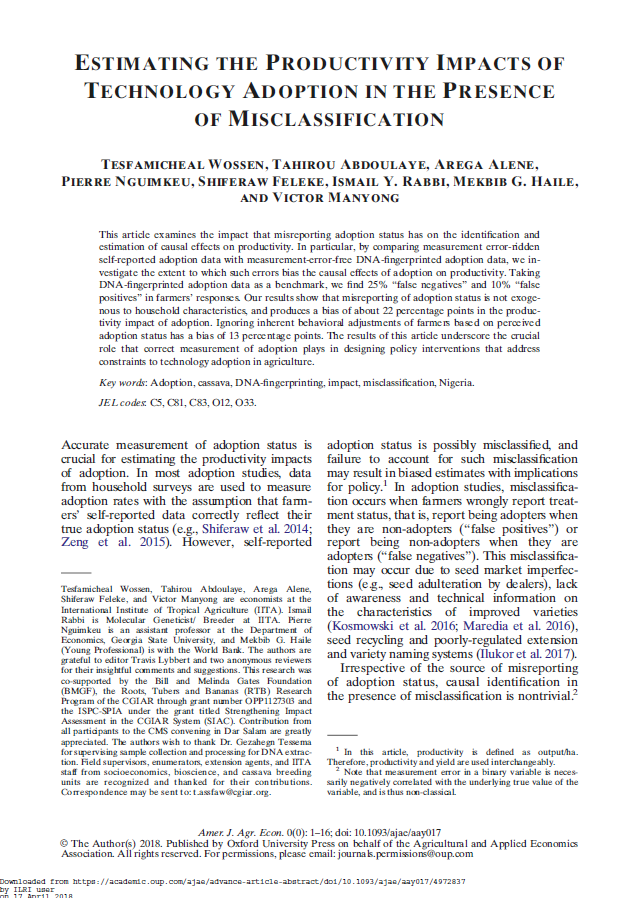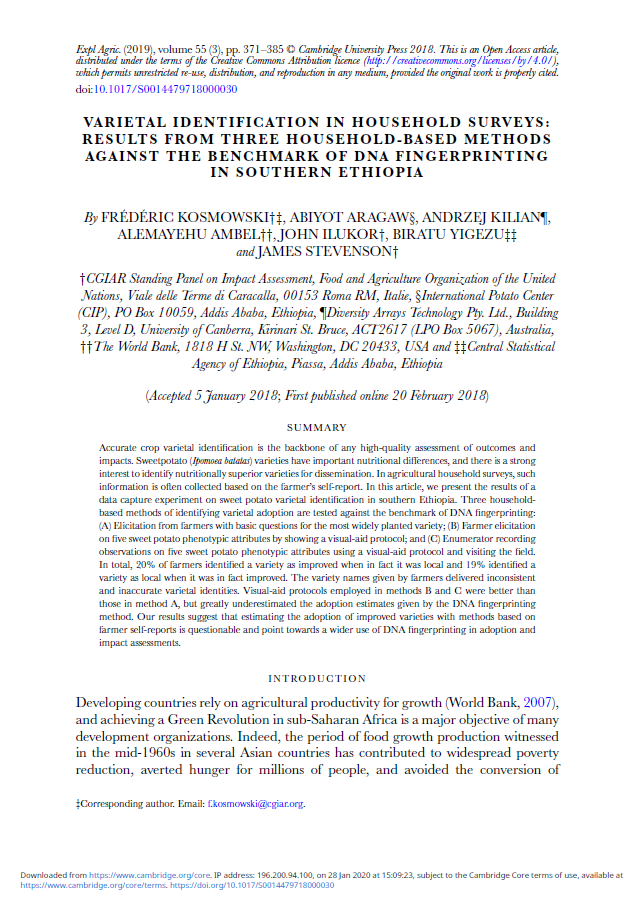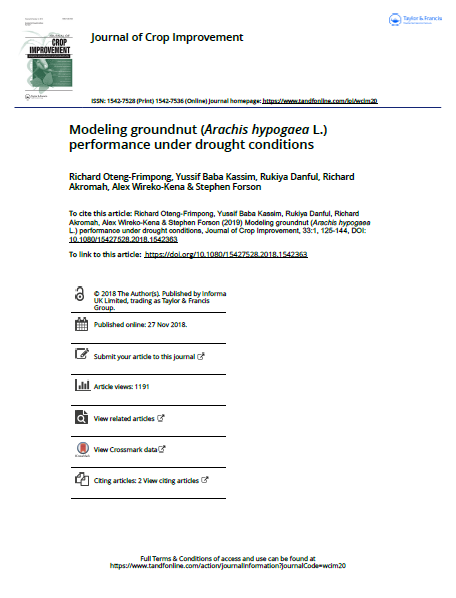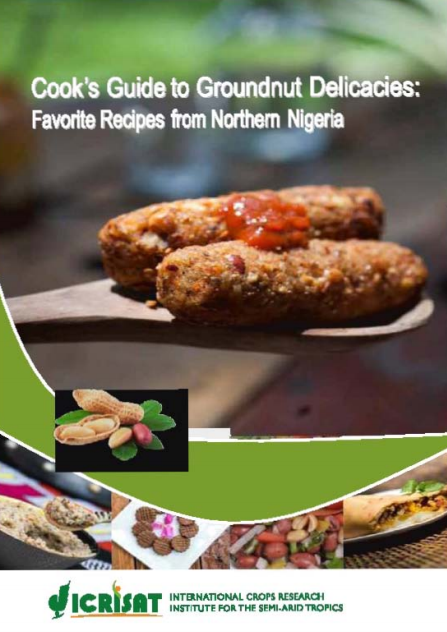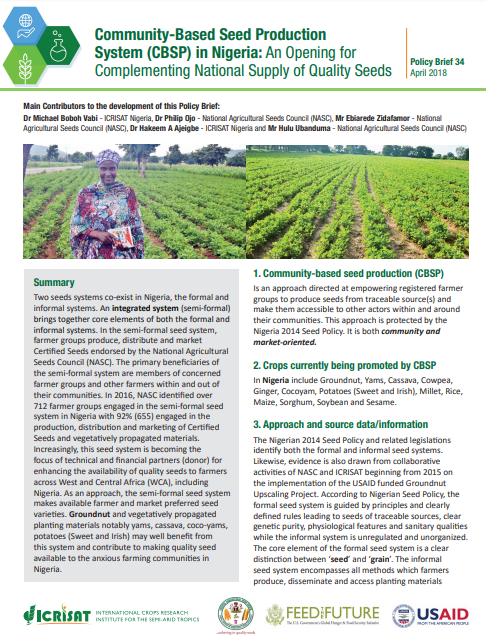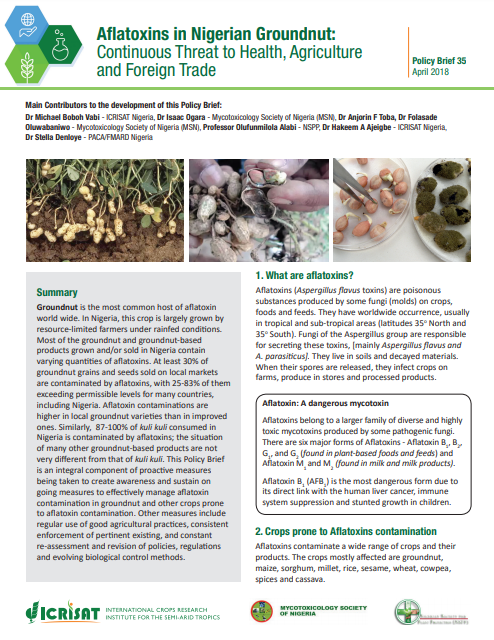Adoption and ex-post impacts of improved cowpea varieties on productivity and net returns in Nigeria
An assessment of the adoption and impacts of improved cowpea varieties on yields, net returns, and production costs in northern Nigeria, using data from 1,525 households and applying a control function approach and propensity score matching models.
Project: TLIII
File type: PDF (203.97 KB)
Identification of QTL associated with drought tolerance in Andean common bean
A report from a QTL analysis of drought tolerance in a recombinant inbred line mapping population developed from two Andean bean genotypes and evaluated at two locations in Uganda for two seasons under drought stress and non-stress conditions.
Project: TLIII
File type: External site
Marching towards self-sufficiency in chickpea
A review of chickpea research in India during the last five decades and future research priorities to tackle newer challenges, as India aims to attain self-sufficiency in pulse production by 2050.
Project: TLIII
File type: PDF (355.65 KB)
Patterns and drivers of the adoption of improved groundnut technologies in North-western Nigeria
This article presents the results of interviews with farm families to assess the extent to which improved groundnut varieties are being adopted in northwestern Nigeria.
Project: TLIII
File type: PDF (518.24 KB)
Estimating the Productivity Impacts of Technology Adoption in the Presence of Misclassification
This article examines the impact that misreporting adoption status has on the identification and estimation of causal effects on productivity.
Project: TLII, TLIII
File type: PDF (334.95 KB)
Varietal Identification in Household Surveys: Results from Three Household-based Methods Against the Benchmark of DNA Fingerprinting in Southern Ethiopia
This article presents the results of a data capture experiment on sweet potato varietal identification in southern Ethiopia. The results point towards a wider use of DNA fingerprinting in adoption and impact assessments.
Project: TLII, TLIII
File type: PDF (364.31 KB)
Modeling groundnut (Arachis hypogaea L.) performance under drought conditions
Erratic rainfall is often a limiting factor in the semi-arid regions where most groundnut cultivation occurs. Ensuring availability of cultivars that possess inherent tolerance to drought stress has become a priority. Field and box experiments were conducted under drought and non-drought conditions to identify physiological and agronomic traits correlated with pod yield.
Project: TLIII
File type: PDF (2.58 MB)
Cook’s guide to groundnut delicacies: favorite recipes from northern Nigeria
This Cooks’ Guide from Nigeria recommends including groundnut in at least one meal a day and gives various options for it.
Project: TLIII
File type: PDF (8.44 MB)
Community-based seed production system (CBSP) in Nigeria: an opening for complementing national supply of quality seeds
This policy brief provides an overview of an integrated seed system (semi-formal) which brings together core elements of both the formal and informal systems. In the semi-formal seed system, farmer groups produce, distribute, and market certified seeds endorsed by the National Agricultural Seeds Council (NASC).
Project: TLIII
File type: PDF
Aflatoxins in Nigerian groundnut: continuous threat to health, agriculture and foreign trade
This Policy Brief is an integral component of proactive measures being taken to create awareness and sustain on-going measures to effectively manage aflatoxin contamination in groundnut and other crops prone to aflatoxin contamination.
Project: TLIII
File type: PDF (1.90 MB)


